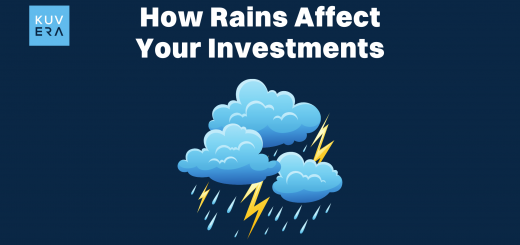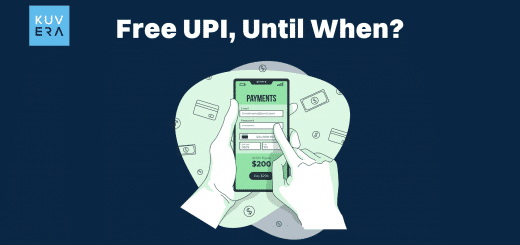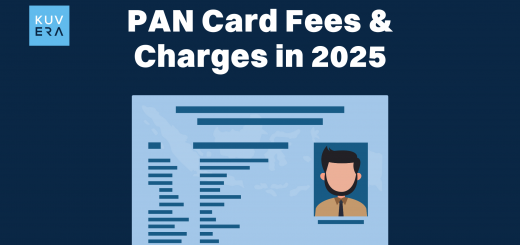Gone are the days when people finished studying in their early 20s, got married in their mid-20s, bought a house in their late 20s, and by the time 30s came around, they were well settled into their adult life.
In the past decade, things have changed drastically. More people are choosing to go for higher education in hopes of earning better. This leads to higher education loans and greater stress of EMI payments. The 20s are spent in a whirlwind trying to figure out life, career, and finances.
With education expenses increasing at a much higher rate than the rate of earning, figuring out finances has become the number one priority for most youngsters. The financial struggle has become a part of the 20s.
Most of us expect our 30s to look different, to have more financial stability and freedom than our 20s. However, to be able to achieve a certain level of financial security and stability, the groundwork needs to be done in the 20s itself. Without setting up some ground rules and practicing healthy financial habits, our 30s will look more or less similar to our 20s.
Here are 5 simple financial basics that you need to start practicing now to build a stable financial condition in your 30s;
1. Set up your financial goals
This is the first and very crucial step. As soon as you start earning or even before that, have a list of financial goals that you want to achieve and the respective age that you want to achieve these goals.
This can be as simple as paying off your student loan debt, buying a home, setting up funds for your wedding, etc. These are your personalized goals. These will be in addition to the basic financial goal like retiring at 60, having decent health insurance, emergency funds, etc.
2. Invest in your goals
There are two things to consider here, one your basic goals that we mentioned above and another your personalized goals. To achieve both of them savings will not be enough as inflation will decrease the value of your money. Therefore, you need to invest.
Start allocating a small percentage of your income to each of your goals and the best way to do this is to use a goal-based investment plan as this will tell how much you need to invest to be able to achieve your goal within a certain time frame.
Remember if you start early then you the amount of investment per month is also significantly lesser and you can enjoy the benefit of compounding.
Always prioritize your financial goals over instant gratification. The key to having a financially secure 30s is to not give in to FOMO in your 20s.
3. Prepare your emergency funds
During Covid, a large majority of the population experienced a major financial setback but people who had a strong emergency fund were able to ride out the crises with much more ease than the rest.
The purpose of an emergency fund is to act as a backup for any financial emergency that might arise, while a lot of us operate under the assumption that our savings alone will save us during emergencies, generally this is not the case.
Health emergencies, layoffs, etc can significantly harm your financial condition if you don’t have a dedicated emergency fund.
Ideally, your emergency fund will be 6 months to a year of your income but the higher the number is, the more secure you will be. So start your emergency fund as soon as you can.
4. Don’t delay your investments
Yes, we know that the lack of financial education in schools and colleges has created a general fear surrounding investments. And this is the reason most of us, wait and wait some more to have more financial knowledge and awareness before we start investing.
But this is a very wrong approach to investing. You will not wake up one day and have all the financial knowledge needed to start investing. You can only learn while practicing.
Start investing with a small amount and learn as you go, once you are confident you can start investing more.
With the job market as fickle as it is now and a looming fear of inflation and economic crises, it is crucial that you start investing as soon as possible to extract the benefit of compounding over time.
5. Be open to new and challenging career opportunities
While ensuring that you use your income most judicious and sensible manner possible is a great approach to financial stability, another is ensuring that you keep on increasing your disposable income from time to time.
Try monetizing one of your hobbies, have a side hustle, or just be very open to new opportunities in your existing career path that have the potential to make you more financially secure.
Your 20s are the most important decade for your career. Make sound and wise decisions that will land you at a much better place than your peers in the next 5 years.
Your 20s are the building blocks for your 30s. With a few smart decisions and consistent healthy financial habits, you will have a secure and stable financial life not just in your 30s but also for the rest of your life. The key is to always see the big picture and be focused on your goals.
Interested in how we think about the markets?
Read more: Zen And The Art Of Investing
Watch here: ELSS: Saving tax through mutual funds
Start investing through a platform that brings goal planning and investing to your fingertips. Visit kuvera.in to discover Direct Plans and Fixed Deposits and start investing today.











